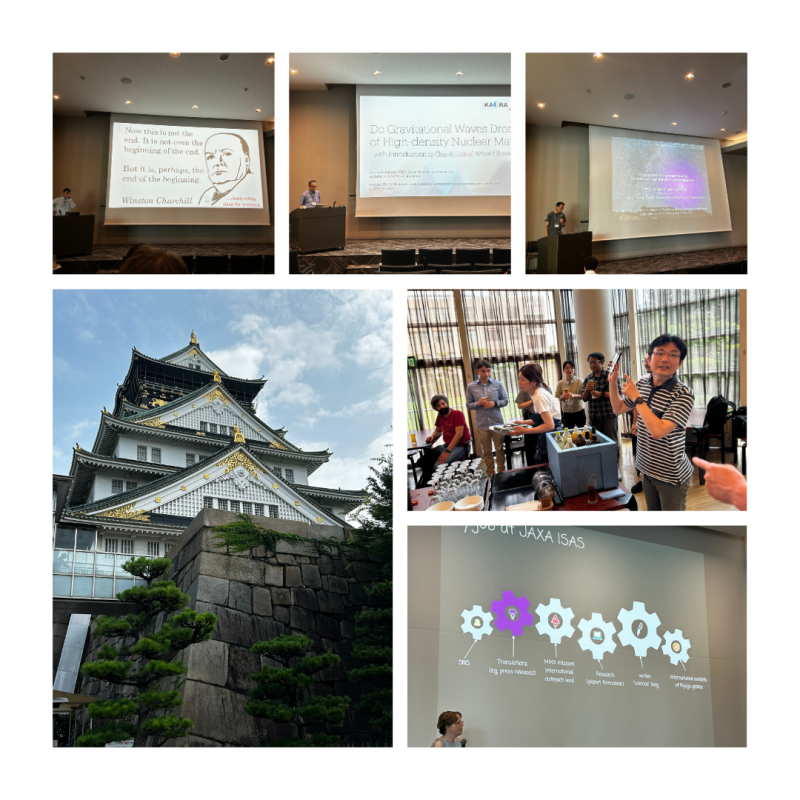Data
Strengthening Japan–US Collaboration in Nuclear Astrophysics: 2nd IReNA-Ukakuren Joint Workshop

The Japan Forum of Nuclear Astrophysics (Ukakuren) and the International Research Network for Nuclear Astrophysics (IReNA) reaffirmed their commitment to advancing scientific collaboration between Japanese and U.S. institutions by hosting the second edition of their joint workshop, “Advancing Nuclear Astrophysics and Beyond” , held July 14–18, 2025, on the Sugimoto Campus of Osaka Metropolitan University in Osaka, Japan. The inaugural workshop was held in Tokyo in the summer of 2023, hosted by the National Astronomical Observatory of Japan (NAOJ).
This international multidisciplinary workshop continues to provide a vital platform for strengthening ties between the US and Japanese institutions. The workshop brought together 77 participants from the US and Japan to highlight recent advances in nuclear astrophysics and foster collaboration across a wide range of fields. The program featured 21 invited talks -- 7 of them by CeNAM members -- and 14 contributed presentations covering major topics such as nuclear equation of state, nuclear structure and reactions, stellar evolution, explosive phenomena and nucleosynthesis, big bang nucleosynthesis and metal-poor stars, chemical evolution of star clusters and galaxies, nuclear facilities and experimental techniques, neutrino and particle physics, and gravitational waves.
The workshop offered U.S. participants unique access to Japan's vibrant nuclear astrophysics community and cutting-edge research infrastructure. For U.S. scientists, particularly early career researchers, it opened doors to sustained international collaborations, exposure to diverse scientific approaches, and the opportunity to jointly develop projects with long-term potential across borders.
A central focus of the workshop was fostering scientific collaboration between Japanese and U.S. scientists, particularly through the professional development of IReNA and Ukakuren members who are early-career researchers. A dedicated “Careers Session” offered participants insights into diverse career paths, featuring perspectives from academic researchers, research administrators, science communication professionals, and research support staff.
Notably, early-career Japanese researchers played a key role in shaping the program. As part of the organizing committee, they gained hands-on experience in coordinating an international scientific event—an important shift from traditional Japanese academic culture, where such roles are typically reserved for senior faculty. Their active role mirrors the collaborative spirit that IReNA promotes across networks.
The workshop was jointly supported by IReNA and Ukakuren member institutions, including the Research Center for Nuclear Physics (RCNP) at Osaka University, the Nambu Yoichiro Institute of Theoretical and Experimental Physics (NITEP), Osaka Metropolitan University, and the Asian Nuclear Physics Association (ANPhA).
